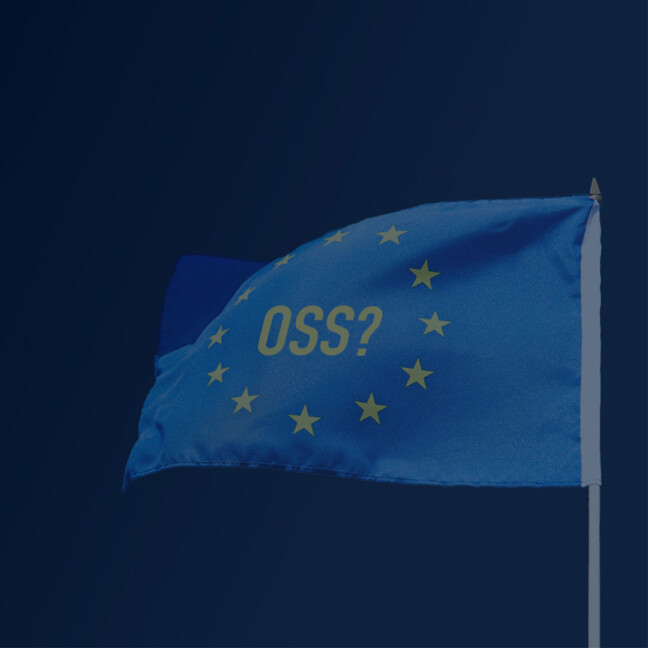What is VAT in the Digital Age (ViDA)?
The VAT in the Digital Age (ViDA) initiative is a comprehensive reform package introduced by the European Commission to modernise and enhance the EU’s VAT system. Set to roll out from 2025 through 2035, ViDA aims to simplify VAT compliance and make it more efficient for businesses operating in the EU.
The reform package focuses on three key goals:
- Real-time digital reporting through a mandatory e-invoicing system.
- Updated VAT rules tailored to the platform economy.
- A single VAT registration for businesses selling to consumers across the EU.
Important Changes: In Effect and Upcoming
Businesses and platforms must adapt to new e-invoicing systems, digital reporting requirements, and extended VAT obligations:
- From 2025, EU Member States can implement national e-invoicing systems for domestic B2B transactions.
- Mandatory e-invoicing for intra-EU B2B transactions begins 1 July 2030.
- From 2030, online marketplaces facilitating short-term rentals or passenger transport services will fall under the deemed supplier regime.
- VAT obligations extended to third-country online retailers selling in the EU through marketplaces.
- Real-time reporting replaces the EC Sales List (ESL) for intra-EU transactions starting 1 July 2030.
The Current Progress in Implementation of ViDA
In December 2022, the European Commission published its draft of the VAT in the Digital Age (ViDA) initiative. In November 2024 the European Council agreed on the VAT in the digital Age Package. The first changes came into effect with the acceptance of the package at the start of 2025. More changes will be rolled out over the coming years.
E-Invoicing (Effective from January 2025)
EU Member States can now introduce national e-invoicing systems without requiring prior approval from the European Commission. However, these systems are limited to domestic B2B transactions, meaning they do not yet apply to cross-border supplies of goods and services.
Key updates for businesses include:
- Mandatory acceptance: Customers are now obligated to accept e-invoices in countries with a national e-invoicing mandate.
- Simplified issuance: Issuing e-invoices no longer requires customer consent where national e-invoicing is enforced.

Single VAT Registration (Effective from July 2028)
The implementation of the Single VAT Registration, initially scheduled for January 2025, has been postponed to July 2028. This reform expands the One-Stop Shop (OSS) reporting system and extends the reverse charge mechanism (under Article 194 of the VAT Directive) to include foreign businesses supplying goods and services across borders.
While the goal of the Single VAT Registration is to simplify VAT compliance by reducing the need for multiple VAT registrations across EU Member States, the changes are not entirely straightforward. The adopted proposal includes optional measures for individual Member States, which limits the full harmonization of reverse charge rules. As a result, businesses will still need to assess VAT registration requirements on a case-by-case basis for cross-border transactions.

Changes in Platform Economy (Effective from January 2030)
The deemed supplier regime will be extended to online marketplaces that facilitate short-term rentals of apartments (up to 30 days) or passenger transport services. From July 2028, Member States will have the option to voluntarily implement the provisions of Pillar 3 ahead of the mandatory date.
The newly adopted compromise proposal also includes exceptions, particularly addressing the tax status of the actual service provider and taking into account the rules for EU small businesses that will apply from 2025. It is expected that countries like Spain will adopt these provisions early. As of January 2030, the new regulations will become mandatory across the EU.
The second element of this package concerns the extension of the deemed supplier regime to online retailers based in third countries. Until now, online marketplaces were only held liable for VAT in B2C transactions. In the future, this rule will also apply to both B2C and B2B transactions carried out by third-country online retailers selling goods in the EU through an online marketplace.

How does ViDA affect marketplaces and platforms?
The reform planned by the EU is intended to close tax gaps, reduce competitive distortion and simplify registration and reporting requirements for merchants. However, marketplaces and platforms have to face numerous new tasks.
Additional efforts due to the extension of marketplace liability:
You are responsible for
- accounting and correct tax treatment of intra-European transactions,
- accounting of stock transfers in warehouses,
- processing the merchant invoice (incoming) and issuing receipts for the buyer (outgoing),
- calculation, collection, and payment of the VAT due to the respective tax authority,
- extensive, additional reporting obligations via OSS or local reports.
Tax liability also for intra-European transactions:
You take over from the merchant
- the responsibility to apply the country-specific applicable tax rates,
- the verification and documentation obligations (e.g. for VAT ID validation, proof of arrival, etc.).
Necessity of data reconciliation of order and payment:
You check
- the reconciliation of order and payment data to determine the correct tax base.
Reporting obligations:
You create
- electronic invoices for your merchants’ B2B transactions (intra-Community supplies),
- real-time reporting of all cross-border and possibly national B2B transactions.
How you can prepare
Our checkout integration ClearVAT provides a border-free sales experience for orders within the EU and takes over all tax obligations you must fulfil.
